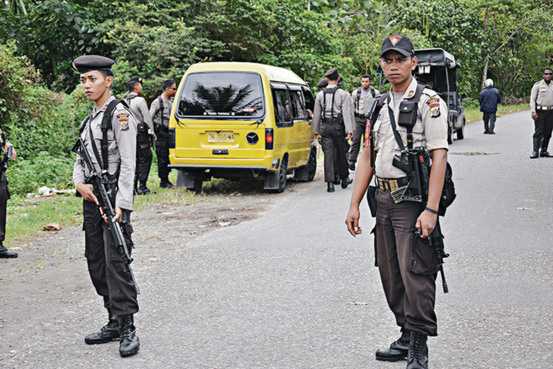Blurry Lines
 Drug trafficking in Southeast Asia is the epitome of high-risk activity. The latest case to infect global consciousness involves a British grandmother, 56-year-old Lindsay Sandiford, who was on 22 January sentenced to death for the trafficking of 10.6 pounds of cocaine in Bali, Indonesia. The British government has strongly rebuked the sentence, lamenting the barbarism of the verdict – the death penalty for a “nonviolent” crime – by a country that, apparently, ought to know better.
Drug trafficking in Southeast Asia is the epitome of high-risk activity. The latest case to infect global consciousness involves a British grandmother, 56-year-old Lindsay Sandiford, who was on 22 January sentenced to death for the trafficking of 10.6 pounds of cocaine in Bali, Indonesia. The British government has strongly rebuked the sentence, lamenting the barbarism of the verdict – the death penalty for a “nonviolent” crime – by a country that, apparently, ought to know better.
The court in Indonesia, clearly, had not been reading from the same hymnbook as everyone else, going far beyond the prosecution’s recommendation of fifteen years in prison and arguing that the death penalty was validated by the absence of “mitigating reasons” for her situation. Exactly what this situation was proved unclear. Depending on whose opinion one encountered, Sandiford was either an experienced and recalcitrant drug trafficker, or otherwise a helpless victim where death threats toward her family forced her involvement in this sadly grotesque episode.
The harsh truth is, the whole thing reeks of sensationalism and will invariably be cast aside once the parties involved find new incidents to express their outrage over. Focusing on the superficialities of the Sandiford case lead us away from the important underlying questions that lie at the heart of the dispute over the death penalty. For instance: from where, and on what grounds, do countries like Britain muster expectations of countries like Indonesia? Why, indeed, are the British loath to let one of their own suffer the penalty of another country’s laws?
The process of decolonization in the latter half of the 20th century perhaps fundamentally explicates the disparities in countries’ policies toward capital punishment across regions and time. This applies especially to Southeast Asia, a region whose member countries are, save for Thailand, all former colonies.
What is especially noteworthy is the legal stasis on capital punishment that many Southeast Asian countries, broadly speaking, have maintained since independence. For instance, my home country of Singapore has largely retained the laws on capital punishment it inherited from its time as a British colony; its drug laws, especially on trafficking, fall into that category. Human rights groups such as Amnesty International – a notable voice of protest in the Sandiford case – regularly barrack Singapore and its Southeast Asian neighbors for the severity of their drug laws.
Curiously enough, this seems to have had an effect on Southeast Asian countries in recent months. For instance, the possibility of “discretionary sentencing” has been mooted in Singapore, where previously the death penalty was mandatory in situations where traffickers were caught with more than a specified quantity of drugs. Viewed by the Singaporean population, this represents unprecedented and (largely) welcome change. It is one that, in mellowing Singapore’s legal inflexibilities, also brings them away from unsavory monikers such as “Disneyland with the Death Penalty”.
As with the Sandiford case, however, such changes can be lost on the general public. Failing to see the slow progress made by countries in Southeast Asia reveals ignorance of the true relationship between countries like Indonesia and Singapore, and the loud voices of the international community that think themselves entitled to have a go at countries if it so interests them. The British, after all, had several hundred years of practice with the death penalty before ridding themselves of it; Singapore, Indonesia, and the rest of the Southeast Asian countries are barely 50 years old on average.
Exceedingly harsh drug laws are, of course, only defensible up to a point. But any sovereign country treasures its right to manage its affairs on its own terms. There is no sense in persisting with laws that punch far above their weight. But the solution to that is not, as sometimes I think humanitarian organizations imply, to rip out the core of (for all its faults) a functional and effective legal system in exchange for “globally mandated” ideas. In the context of the death penalty, it is profoundly ironic – to me, anyway – that this argument can be convincingly put forth when juggernauts like the United States and China reserve their right to mete out capital punishment.
It is unfortunate that Sandiford, whatever her motives, has been cast into the global limelight. Many will pick her case apart, and it will invariably be appealed. But the parties involved ought to do better than add to a debate that only inspires indignant rhetoric from both sides, without inspiring genuine progress – no matter how modest. For time, that most precious of commodities, is not on the side of the countries under scrutiny, as they endeavor to conform to the great expectations of the wider world. We should not deny them patience as well.

